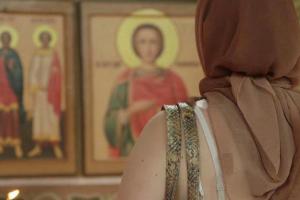One of the tenets of faith is that harmful passions are overcome by virtues. This applies to all religions without exception. Whether we are talking about how to atone for sins in Islam or in Christianity, in Buddhism, or in another faith, we must be guided by this postulate.
But before you atone for sins, you need to understand what it is. A lot is invested in the concept of sin, because the word itself in its primary meaning is “failure.” That is, sin is a mistake made by a person, his “missing, inconsistency” with God’s plan. This means that in the broad sense of the word, any thoughts and actions of people that run counter to the covenants and postulates of the professed religion can be sinful.
How do sins arise?
In how to atone for sin, an important role is played by understanding the reason that gave rise to it. Sins are like ripples on the water. In this case, a person often sees only circles spreading across the water surface, but does not notice the stone that was thrown and sank to the bottom, causing them.
This image fully reflects the mechanism of the appearance of sins. The basis of each of the sins lies in what pushed a person to commit it, that is, figuratively speaking, a stone thrown into the water and sank to the bottom. As a rule, this stone is one of the seven deadly sins, which are the most serious and dangerous for the human soul.
Each of the mortal sins inevitably entails a copious list of offenses that are not virtuous. They often become a smoke screen that prevents a person from seeing the reason for his sinfulness. By begging for them, a person cannot stop sinning and does not feel relief. This happens because mortal sin continues to “drag to the bottom” and destroy the soul.
What sins can there be?
Although each religion is distinguished by a certain floridity and softness, a lack of straightforwardness, in the question of how to atone for sin, everything is extremely simple and clear. There is only one answer - do not sin. Do not sin from the beginning, and if the offense could not be avoided, then do not repeat it or aggravate it.
Sin is like a disease for the soul. Accordingly, before thinking about its cure, that is, about redemption, it is necessary to understand what sins can be. In the question of how to atone for sins, in Orthodoxy, as in Christianity in general, clergy conventionally distinguish between the main, primary offenses and the secondary ones, which follow the main ones. That is, sins can be serious or ordinary.
In addition, there are violations of God’s commandments, which is not nominally a sin, but becomes a path to it.
What are the sins?
Christianity has seven deadly sins. The sacred seven, present in many religious texts, did not arise overnight. Initially there were eight sins. However, over time, based on practical observations of the lives of believers in general, the church leadership came to combine the two positions into one. Concepts such as “sadness” and “despondency” were combined.

The list of mortal sins was drawn up by Pope Gregory I Dvoeslov and began to include the following concepts:
- pride;
- envy;
- anger;
- despondency;
- greed;
- gluttony;
- lust.
They are the cornerstones of the sinfulness of man as a whole. Their presence pushes one to commit sinful acts and poisons the human soul.
Is breaking the commandments a sin?
All believers, without exception, think about this question at least once in their lives. Indeed, in the modern world it is extremely difficult not to break the commandments. For example, the one that says to turn the other cheek if you hit one. After all, the first thing a person tries to do when he is offended is to respond, punish, repay. Or the commandment “thou shalt not kill” - abortions, which are part of routine paid services in all gynecological clinics, violate it. “Thou shalt not steal” - understanding it more broadly than simply taking other people’s things, a person inevitably realizes that the commandment is violated everywhere.
Nominally, violation of commandments is not considered a sin in the church worldview. However, this does not mean at all that by breaking the covenants left by the Lord, a person does not commit an offense. He commits, and moreover, this offense requires atonement.
Violation of the commandments, not nominally, but in fact, is one of the most serious manifestations of sinfulness, if we understand it more broadly than a list of mortal offenses. God's commandments are not at all a random set of guiding postulates designed to streamline human life and make it easier for churchmen to lead their flock.

Their observance is necessary in order to avoid the Fall, but violation is the direct and shortest road to mortal transgressions, which become poison, a fatal disease for the soul. Violation of the commandments leads to one of the deadly sins, which will inevitably affect a person’s entire life and affect his fate.
Thus, a pattern can be traced - mortal sin becomes the root cause for ordinary offenses, but violation of commandments is the factor that gives rise to serious offenses.
How to avoid them?
Thinking about how one can atone for a sin, any thinking person invariably comes to the conclusion that the simplest option is not to commit it. Drawing an analogy with a disease, we can say that a simple way of atonement is prevention, preventing the development and occurrence of a sin.

This approach does not at all contradict religious foundations; moreover, it is precisely to prevent sinfulness that the commandments were given to people. However, in order to avoid sins, you need to have a clear understanding of their essence. The name of a sin cannot be understood superficially and literally; behind each name there are hidden many phenomena characteristic of a person’s everyday existence. You can encounter the possibility of a mortal sin everywhere and every day, and you don’t even need to leave your apartment. For example, the sin of laziness is not only a reluctance to do any work, but also a lack of spiritual and intellectual development, taking care of oneself and the home, and much more.
About pride
This sin is often confused with high self-esteem and envy. However, pride has nothing to do with an excessive sense of self-confidence or the desire to excel others in anything.
Pride is a way of life in which a person considers himself “the navel of the whole Earth,” and also believes that his achievements are the result of his own and no one else’s. That is, for example, if a person becomes a world luminary in a particular field, then he sincerely considers this only his own merit, completely forgetting how much effort was put in by his parents, loved ones, and teachers. He also forgets that everything in life is given by the Lord.
About envy
This is a sin that lurks everywhere. However, it should not be confused with the desire to look or live no worse than others. Envy in its essence is a deep mental disorder, the root of which lies in the denial of God's plan.
A person subject to this sin does not notice what God has given to him, he sees exclusively what others have. In fact, envy is an everyday denial of one's destiny and the desire to live someone else's life. For example, a person is given a talent for drawing, but instead of painting canvases and developing in this direction, he looks at the musicians with sighs and stubbornly knocks on the piano keys.
About anger
Anger is not just an uncontrollable outburst of emotions. This is a sick state of mind in which a person denies any opposition to his will or ideas. Anger doesn't just lead to violence. He is violence itself in all possible forms. Many are subject to anger; it is expressed in the dictate of one’s own will and rejection of everything that diverges from it.
For example, parents who force their children to embody their own, adult ideas and nip in the bud any independence of the child are susceptible to the sin of anger. Spouses who beat their wives for cooking cutlets incorrectly from their point of view are also subject to the sin of anger. Rulers who introduce laws prohibiting dissent also show anger. This sin is the most common. It has roots in a person’s selfishness, in his closeness to everything around him and his fierce opposition to what goes against his own beliefs.
About despondency
The most terrible and severe of all seven deadly sins. Dejection is the most insidious sin; it quietly creeps into a person’s soul, masquerading as a bad mood or sadness. Dejection, like a cancerous tumor of the body, takes over the soul entirely, and it is incredibly difficult to get rid of it.
Depression, sadness, melancholy, or reluctance to get off the couch is despondency. Reluctance to live - this is how clergy often interpret the concept of this sin. However, despondency does not necessarily manifest itself in severe depression or other psychological personality disorders. Everyday fatigue, melancholy, sadness and lack of ability to see something good - despondency. It is easy to distinguish a sin from ordinary sadness or sadness. Dejection is never light; darkness reigns in the soul of the person subject to it.
About greed
This is not just a desire to “raise” as much as possible for yourself. There is no sin in a person’s desire to live in comfort and satiety. Greed is the complete subordination of all thoughts to the race for material goods that are not needed.
That is, if a person has a TV, but he goes to the store and buys a more modern, advertised and fashionable one, but the functions are practically no different from the one in the house, then this is greed. The sin of greed excludes the concept of responsibility. That is, a person spends and does not earn. Greed in the modern world leads to an endless increase in material debts, and this, in turn, entails complete inattention to the spiritual side of one’s own personality, because all thoughts are occupied only with vain things.
About gluttony
This is not only the abuse of food or wine. Gluttony is similar to greed - it is the consumption of excess on the one hand, but the sins are different.
This sin is pleasing oneself, pleasing oneself in every sense. Indulging one's own passions and momentary whims, regardless of what they concern. For example, traveling to exotic countries to visit brothels with teenage boys is gluttony. Eating two or three servings of fried potatoes with lard during acute gastritis is also gluttony. This term has no precise boundaries; it implies indulging harmful passions in all areas of life.
About lust
Lust usually means fornication. However, this perception is overly simplified and narrowed.
Lust is callousness, both in carnal pleasures and in anything else. If we consider a sin using the example of the intimate sphere of life, it means the mechanics of actions that provide a nervous spasm that gives momentary pleasure. There is no soul in such sexual intercourse. That is, all the manuals that tell you what, where and how you need to “rub” to get arousal are practical guides to the sin of lust. Human souls must participate in an intimate relationship; there must be an emotional component, that is, love, and not just sexual lust.
Accordingly, lust is soullessness, the predominance of flesh over emotions. This sin can manifest itself not only in the intimate sphere of human life, but also in any other.
What do you mean by repentance?
All religious texts talk about how to atone for sins before God. You need to sincerely repent of what you have done. You cannot come to church, buy a prayer service, stand in front of an icon and become sinless.
Repentance is the first step to atone for sin. The first, but far from the only one, although fundamental. Awareness of sinfulness cannot be mistaken for repentance. This is an extremely important point. Understanding by the mind of the unrighteousness of this or that act has nothing in common with repentance. Awareness leads to the appearance of repentance.

For example, a woman visits a gynecological hospital and gets rid of an unwanted pregnancy. After this, she finds a guide on how to atone for aborted children, visits a temple or monastery, orders prayer services and demonstratively repents of what she has done. Is this repentance? No. Moreover, after some time the woman ends up back in the gynecological hospital, and the situation repeats itself. Only she orders prayer services not for one baby at a time, but for two. And so on, the circle of vice is not interrupted, only the number of babies commemorated by the priests changes. Similar examples can be found in any area of life.
True repentance does not imply hysterics and “beating your forehead on the floor.” This is a state of soul in which a person is struck like thunder; it is similar to inspiration. True repentance eliminates the possibility of repeating the sin to which it relates. That is, repentance comes from the human heart, and not from the mind.
However, this feeling needs to be developed and consolidated. This is precisely why special prayers, absolution procedures and other spiritual rituals of atonement are needed.
How to atone for sins?
The main means of atonement for sins and purification of the soul is confession. However, when thinking about whether it is possible to atone for sin, you need to understand the readiness of your soul for this. You cannot simply come to the temple, read a list of misdeeds, receive forgiveness and become a “sinless creature.” The determining role is played by the spiritual need for this action.

Nominally, atonement includes attending confession. During a conversation with a clergyman, a person not only lists his misdeeds, but also talks about them and analyzes them. For example, when talking about adultery, people begin their speech with questions about how to atone for the sins of infidelity and gradually come to talk about the situation in the family, the relationship of partners, everyday life and much more. This is a spontaneous development of the monologue, although, if necessary, the priest asks questions necessary in order to stir up those who come to confession, make them think about the reasons for the offenses and eliminate them, and also make sure of the sincerity and depth of repentance.
This approach to the remission of sins is the same. It is also relevant in how to atone for sin for aborted children, and in other cases. But there are no uniform rules regarding what needs to be done after confession. Each case of sin is unique, because all people are different and their faith does not have the same depth. For this reason, the prayer that priests recommend to atone for sins is different in each case.
To whom to pray, how and how much, that is, everything that worries people with a practical mindset, is determined by the clergyman during confession, based on what he heard. There is no one common “miracle” prayer.
What can't be redeemed?
The path to atonement for sin is internal work on oneself. It is impossible to think that there is a sin that can never be expiated. There are no such sins. Only a person’s internal spiritual efforts differ; they depend on the depth and severity of the sin. Any crime or transgression is subject to atonement.

Of course, the exception is suicide. But this is not at all a sin that “cannot be redeemed”; such an understanding is not entirely correct. Suicide is not “impossible” to atone for, but simply impossible. After all, a person who voluntarily left this world simply cannot repent of what he has done, come to church and pray. Because he no longer lives in this world. For this reason alone, the sin cannot be expiated, and the one who committed it is subject to rejection from the flock, that is, burial outside the consecrated ground without observing church rituals.
Translated from Greek the word "sin" means "miss, miss the target". Man was created in the image and likeness of God. His goal should be the desire for spiritual insight, for union with the Highest, eternal and unchanging. Only this brings true pleasure. But often, people put in first place things that are transitory, perishable, which is considered a sin.
Initially, a person has freedom. Sometimes he chooses life without God, and then he falls away from Him, withdrawing into his corruptible nature. Instead of searching for truth, he seeks pleasure in the world, tries to satisfy his sensual desires. He thinks this will make him happy. But the joy from everything transitory is fleeting. People become slaves to their sensual aspirations, but are never completely satisfied. Sin eats away at their souls, and they move further and further away from God, living in discord with their true nature.
What is a mortal sin?
called "mortals". The concept of sins “to death” and “not to death” was first mentioned in the Bible by John the Theologian. Mortal sins cause irreparable harm to the soul and lead to its death. Committing such offenses completely destroys the connection between God and man. It can only be restored through repentance.The clergy emphasize that the division of sins according to this principle is conditional. Any wrongdoing alienates a person from God, no matter how insignificant it may seem. It's like dividing diseases into mild and severe. People treat minor illnesses with disdain, carrying them on their feet. However, even a small cold with this attitude can lead to serious complications and lead to death. Likewise, ordinary sins, when accumulated, can destroy the soul.
 Since ancient times, clergy have tried to create a classification of mortal sins in Orthodoxy. Their list included many serious sins, such as murder, suicide, theft, insulting God, abortion, turning to dark forces, lying, etc.
Since ancient times, clergy have tried to create a classification of mortal sins in Orthodoxy. Their list included many serious sins, such as murder, suicide, theft, insulting God, abortion, turning to dark forces, lying, etc.
The first attempts to unite all mortal sins into several groups were made by Cyprian of Carthage in the 3rd century AD. e. In the 5th century, Evagrius of Pontus wrote a whole teaching in which he listed the eight main sins that underlie all the others. Subsequently, their number was reduced to seven.
Seven is a sacred number in Orthodoxy. God created the Universe in seven days. The Bible consists of 70 books. In them, the number “seven” is mentioned exactly 700 times. There are seven sacraments through which Divine power is transmitted to believers. So the mortal sins that separate us from God have been conditionally divided into seven groups.
Let us list the sins included in the generally accepted list:
It seems to many that depression is just an innocent human weakness. However, the Church warns against such erroneous judgments. Despondency leads loss of strength, laziness, indifference to other people. Instead of trying to change something, a person despairs, stops hoping for a better outcome and exists in discord with his soul. As a result, he loses faith in God and his mercy.
Envy
This feeling is based on an inferiority complex and disbelief in the Creator’s plan. It seems to us that God has given others more material goods, power, virtues, beauty, etc. At the same time, we feel disadvantaged, forgetting that everyone is given according to their needs. Instead of improving and honestly achieving what they want, people lose joy in life and begin to grumble at God. Envy leads to the most serious offenses in the form of murder, theft, and betrayal.
 No less terrible is the anger that often engulfs self-loving people. A person becomes hot-tempered and irritable if someone contradicts him or acts contrary to his wishes. In the most severe cases anger can lead to murder or violence. In milder cases, it destroys relationships with loved ones and becomes the cause of conflicts, disputes, and misunderstandings. The main damage is caused to the soul, which is corroded from within by resentment and the desire for revenge.
No less terrible is the anger that often engulfs self-loving people. A person becomes hot-tempered and irritable if someone contradicts him or acts contrary to his wishes. In the most severe cases anger can lead to murder or violence. In milder cases, it destroys relationships with loved ones and becomes the cause of conflicts, disputes, and misunderstandings. The main damage is caused to the soul, which is corroded from within by resentment and the desire for revenge.
Gluttony
Understands overeating, as well as drinking alcohol, drugs, smoking cigarettes for pleasure. People susceptible to this vice value sensual pleasures more than spiritual ones. Excessive food and bad habits destroy their body, lead to illness, and dull the mind. It was gluttony that destroyed Adam and Eve, and through them, the entire human race. If you have overcome this addiction, then the fight against other sins is much easier.
The Church blesses the intimate relationships of a man and a woman who are legally married. They put love, spiritual unity and mutual responsibility in the first place. However, adultery, sexual relations outside of marriage, dissolute living, lewd thoughts, reading lewd books or watching related videos considered a mortal sin. Those who indulge in it are distrustful of the opposite sex. Such behavior defiles the soul, since receiving bodily pleasure is put at the forefront of everything. This sin is close in essence to the previous one - in both cases a person is not able to curb his carnal desires.
Greed
The desire to take more benefits for yourself inherent in a person from birth. Children fight over toys, adults chase cars, houses, career advancement, a rich spouse. Greed drives people to steal, kill, deceive, and extort. The reason for this behavior is spiritual emptiness. Without feeling unity with God, a person feels like a beggar. He tries to compensate for this by possessing material wealth, but fails every time. Not understanding what the matter is, he tries to get even more wealth, thereby moving further and further away from the Creator.
It was this sin that Satan was subject to. At the heart of pride lies t excessive attention to one’s own person, desire for superiority. Pride pushes us to lies, hypocrisy, the desire to teach others, irritability, anger if someone has disrespected us. Considering himself superior to others, a person spoils relationships with others and treats them with disdain. By valuing himself above God, he also rejects God.
Redemption
Human nature is imperfect. Every day we commit sins, big or small, in thoughts or actions. Therefore, it becomes relevant to know how atone for your sins.
There are three erroneous methods that ignorant people resort to:

It is important to understand: we cannot atone for our sins. But we can receive forgiveness through the great mercy of God. Jesus Christ, having lived his earthly life and accepted death on Calvary, gave his soul to atone for our sins. He founded the Church with its Sacraments, through which liberation is granted. One of these Sacraments is confession. Every person can come to Church and repent of their sins.
 - This is the reconciliation of man with God. The sacrament takes place in the presence of a witness - a priest. Many churchgoing people are confused by this fact. Of course, it is easier to repent to God without witnesses. But this is exactly what Jesus Christ decreed, and we must come to terms with his will. By submitting, we fight the most serious sin - our pride.
- This is the reconciliation of man with God. The sacrament takes place in the presence of a witness - a priest. Many churchgoing people are confused by this fact. Of course, it is easier to repent to God without witnesses. But this is exactly what Jesus Christ decreed, and we must come to terms with his will. By submitting, we fight the most serious sin - our pride.
It is not the priest who grants us absolution, but God through him. The clergyman in this sacrament acts as a mediator who sympathizes with us and prays for us.
Preparing for Confession
Let's consider how to properly prepare for repentance
- You need to start by realizing your sins. Churches often publish special lists of sins to help repentant people. They must be treated with caution. Confession should not be a formal reading of excerpts from such a list. You should listen more to your conscience.
- Talk only about your sins, do not try to justify them, do not compare them with the misdeeds of other people.
- There is no need to be shy and look for special words. The priest will understand and will not judge.
- Start confession with the main sins. Some people prefer to talk about small things like watching TV or sewing on Sunday, but keep silent about serious things.
- You should not wait for the day of confession to renounce sin.
- In order for God to forgive us, we ourselves must forgive the offenders and apologize to those whom we have harmed.
 Sometimes during confession the priest appoints. This could be reading prayers, doing acts of mercy, bowing to the ground, or abstaining from communion. Penance should not be confused with punishment. It is prescribed so that the believer fully understands his sin or overcomes it through spiritual exercises. Penance is imposed for a certain time.
Sometimes during confession the priest appoints. This could be reading prayers, doing acts of mercy, bowing to the ground, or abstaining from communion. Penance should not be confused with punishment. It is prescribed so that the believer fully understands his sin or overcomes it through spiritual exercises. Penance is imposed for a certain time.
Confession ends with a prayer of permission, read by the clergyman. After the Sacrament of Repentance, a burden falls from the soul, it is freed from impurities. You can ask the priest for a blessing for communion.
Communion is a religious rite during which we commune with God through eating bread and wine. The bread symbolizes the flesh, and the wine symbolizes the blood of Jesus Christ. By sacrificing himself, he thereby restored the fallen nature of man. Through the Sacrament of Communion we unite with the Creator, we gain our original unity with Him, which existed before the expulsion of people from paradise.
It is important to understand that a person cannot cope with his sinful nature on his own. But he can do it with God's help. It is necessary to ask for this help, because God has endowed man with free will. He will not interfere in our lives arbitrarily. By sincerely confessing our sins, striving to live according to the covenants of Christ, and reverently communing with the Highest through the Sacrament of Communion, we gain salvation and begin to live in harmony with our own soul.
24.07.2014
Sin, as many people know, is a violation of God's commandments. As Deacon Andrei Kuraev said, sin is considered a wound to the soul that a person inflicts on himself. All people are responsible for their sins before God, except for children under seven years of age, because they are not yet fully aware of their actions.
To believe is to directly place hope in our Lord Jesus Christ. We must not forget that it was Jesus Christ who sacrificed himself in order to acquire for humanity the gift of soul salvation. As Psalm 49:15 tells us, “Call upon Me in the day of trouble, and I will deliver you.”
Sacrament of Confession
Confession is a great sacrament of Christians, during which a person who has repented of sins is cleansed of his sins directly by our Lord, Jesus Christ. According to the Holy Scripture, when confessing sins, the righteous Lord, thanks to faith, forgives the sins committed and cleanses our soul from all unrighteousness. It is also necessary to take into account that it is not enough to ask God for forgiveness for your sins during home prayer; he entrusted this mission of resolving sinfulness only to the apostles and also their successors, clergy and bishops. You can simply pray in the cathedral, where there is, for example, St. Alexander of Svir. You need to prepare for confession in advance, namely:
- make peace with your neighbors;
- ask for forgiveness from those who may have offended you;
- take communion;
- try to remember all your sins;
- write down your sins on a piece of paper.
It would also be useful to read special literature regarding the upcoming church event before the sacrament.
In the evening, before morning confession, you will need to read the following canons at home:
- Penitential canon to the Mother of God.
- Canon of repentance to our Lord Jesus Christ.
- Repentant canon to the Guardian Angel.
To do this, you can use a prayer book that includes these three canons.
Performing penance

You will also need to perform the penance prescribed by the priest. In some cases, the clergyman imposes penance on the repentant person to help fight the sin he has committed. Penance may include increased prayer, fasting, a ban on directly receiving Communion for some time, almsgiving, pilgrimage to shrines, and the like. This act must be treated precisely as a command from God, which is intended to heal the soul. Penance must be performed.



In the Catholic Church, believers repent in order to have their sins forgiven and for reconciliation and reunification with the church. The priest is given the power by the church with which he can forgive the sins of repentant people. ...
Despite the fact that modern society is mired in the pursuit of material wealth and has forgotten what real spirituality is, there is something glimmering inside every person that does not allow one to completely slide down to the animal level. This inner light, by any available means, tries to direct us on the path of moral perfection and tells us how to atone for our sins.
What is sin
During the existence of mankind, spiritual mentors have identified a number of acts after which a person experiences mental discomfort. Such actions are called sins. The Greek translation of the word "sin" is "failure." Sin is when you have to go against morality. And the main thing is that we ourselves know and feel where we went against our own moral concepts. At this moment one becomes ashamed and ashamed, an understanding and feeling of the wrongness of the action comes.
In any religious culture there are commandments, following which a person will never commit sin and will not suffer. It is told what to do and how to atone for sins. Murder is on the list of universally recognized sins. Murder of love, respect, human life.
Who can atone for our sin
Let us begin, perhaps, with the fact that it is necessary to understand one important, one might say, key point. By definition, we cannot atone for our sins on our own. Sins are not redeemed by us, but by the Redeemer, who of his own free will agreed to take upon himself our sins. And all we can do is ask him for such an invaluable service.
To obtain the opportunity for forgiveness, and therefore, atonement for sins, it is necessary to turn to a clergyman.
Secret of Confession
During a visit to a church minister, you will need to confess; a conversation with the clergyman will help you remember all the circumstances that accompanied the sinful act. Sleepless nights and heaviness in the soul after an abortion, all your thoughts on this matter should not be hidden. How to atone for the sin of abortion, what needs to be done to calm mental anguish, the minister of the church will determine individually in each case. It should be remembered that during confession one thing is important - the depth of repentance and willingness to change.
Soul cleansing
The ritual of cleansing after repentance and confession will help solve such a problem as atone for the sin of treason. After all, betrayal of one’s lawful spouse is sinful for both a woman and a man. In this case, you will need to take Communion. Remember. Before Communion, you must fast for at least three days.
We are not without sin. And we can be wrong. What yesterday seemed the only true thing, for example, intimacy with the person you like, today causes disgust and pain. How to atone for the sin of adultery in this case? Accept responsibility for your actions and do not hold grudges against yourself or the participants and witnesses of your actions. No matter how much we repent, no matter what we do to atone for our sins, we will never be able to completely dissolve the consequences of our actions. All misdeeds will remain in our memory and in the memory of those who witnessed them until the very end of our lives. Be prepared to be patient. The past cannot be changed. It will remain scars on our fate and the fates of those affected by our actions.
Fruits of Repentance
All that a person can do to atone for sins is to change his usual behavior. We may not be able to change the past, but we can change the present and future. Repentance and confession to a priest can smooth out suffering and pangs of conscience. But life can be changed radically only by kind-hearted actions.
How to atone for sin, and what needs to be done for this? Find out what priests advise to atone for the sins of abortion, infidelity or adultery.
Modern society often treats religion as some kind of abstract element of culture. Some even go to church to celebrate fashion. At the same time, without observing fasts and commandments, and without knowing prayers. This approach leads to people sinning without thinking about their actions or their consequences. The realization that something was done wrong comes only after misfortunes occur in their lives. Then, remembering their life and analyzing what is happening, they understand that they have done a lot of bad things in their lives. And then they wonder how to atone for their sins?
We atone for sins with prayer
To atone for your sins, first of all, you should sincerely repent of them. To do this, it is better to contact a priest. Those people who often attend church often have their own confessor, but if you are not a regular parishioner, then you can choose a priest yourself. But in this case, you should pay attention to how confession is conducted. It can flow in a stream, that is, a person lists all his sins, and the priest, in turn, absolves them. However, if you truly repent of your sins, then this option is unlikely to suit you. Therefore, it is better to choose a priest who will have time to talk with you, during which he can give advice, and you will read a prayer for sins.
Any priest honors the secret of confession, and everything you tell him will be kept secret. Therefore, you should not hide anything, no matter how scary everything is, it is better to tell everything as it is. Typically, the priest will give you some instructions that you should strictly follow. This could be ordering a prayer service, fasting, or daily prayer for the forgiveness of sins. It is worth considering that reading prayers should come from the heart, only in this way can you free your soul from the burden of committed sin, clear your conscience and find peace of mind, and as a result, draw closer to God. In other words, you will cleanse your heart, revive your soul and heal your consciousness. In the process of repentance, you will be immersed in memories and note the sinfulness of your thoughts, actions, feelings at a certain period of your life and will be able to free yourself from the oppressive state.
Many women ask themselves how to atone for the sin of abortion. It doesn't matter why they did it, what matters is that they realized their mistake. In this case, you need to confess, then the priest will impose penance, which is more of an educational nature than a relieving sin. Unfortunately, there is no prayer that removes the sin of abortion, but you can always help other women not to commit it. If you do not have children, then you can adopt a child and raise him, which is equivalent to building a temple. In any case, no matter what sin you commit, it can be redeemed by good deeds done from a pure heart.








